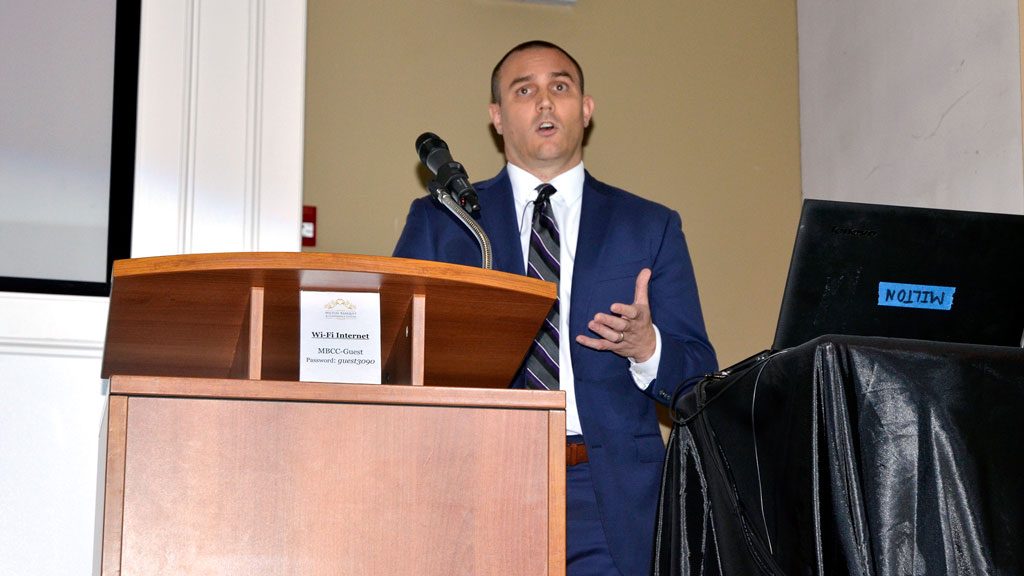Is your workplace ready for the legalization of cannabis?
At the Fitness for Duty Summit held by DriverCheck Inc. recently in Milton, Ont., delegates heard from Jason Fleming of MedReleaf, a licensed cannabis producer, and Dr. Melissa Snider-Adler, chief medical review officer, DriverCheck Inc., a company specializing in medical testing and assessments, who discussed managing cannabis in the workplace.
One good thing about the legalization of cannabis on Oct. 17 is it has people talking about impairment in the workplace, developing policies and educating employees and managers, explained Snider-Adler.
“For the people who are upset about legalization, what has it allowed us to do?” she asked. “It has allowed us to fill this room because there has never been another time that I’ve seen where companies and employers are more engaged about discussing impairment in the workplace.
“Another good thing about legalization is that it will allow us to be able to much more easily do research on cannabis. We will learn more about how it impacts our body.”
Currently there are not a lot of studies on cannabis and specifically the higher levels of THC that are available today. However, there is no doubt cannabis impairs, she said.
“It’s how people are impaired and how long it lasts that we don’t have all the answers to and we may never because there are just too many factors that come into play when we’re talking about that,” said Snider-Adler, adding the effects can last from 24 hours to 28 days.
“Just because it’s authorized, just because it’s legal, does not mean that it’s safe, does not mean that it’s OK to use in the workplace. It is still your duty to do everything possible to maintain that safe workplace.”
Fleming said there are almost 300,000 medical cannabis patients in Canada who use cannabis for a variety of medical conditions such as anxiety, sleep disorders, arthritis, common pain and depression.
Many employees working in companies have these conditions, he noted.
We already know in a lot of cases how to deal with this, how to spot impairment
— Jason Fleming
MedReleaf
“We have to learn about cannabis as a group and to make that successful we have to abandon a lot of our preconceived notions on what a lot of these products are, the people who use them, what their motivations are,” said Fleming.
“We’ve been taught for 100 years that this is a terrible substance, that it’s a gateway drug. It is a complicated substance that has major concerns around impairment…at the same time it is a substance that has evolved a lot and helps a lot of people live a higher quality of life.”
While a few years ago the most popular form of cannabis was dried flower, there are now various forms with new ones being developed every day.
“The more research we’re doing, and the more people who are having positive results with medical cannabis, the more you’re going to see people looking to balance medical cannabis treatment while working,” said Fleming, adding every situation is different and depends on what is being used, how often and the dosage.
“We are all dealing with cannabis in our workplaces now. To think our employees are not using this product for recreational purposes and have not been for years is naive. We already know in a lot of cases how to deal with this, how to spot impairment.”
It’s important to have a solid policy to stand behind, educate your management and safety teams and make sure people in your organization understand the policy. Fleming said being reasonable and open is also important and that employers should be prepared if employees ask if the company’s benefits plan will cover medical cannabis.
“Risk number one is impairment in the workplace can lead to health and safety incidents especially among our safety sensitive workforce,” he stated. “We need to focus on that immediately to make sure there is a plan in place.”
There should be separate plans for safety sensitive and non-safety sensitive workers, he added.
“I started the program in my company by identifying all of our safety sensitive employees. They were the first to be trained and to sign off on the policy and we routinely communicate with them every 90 days,” said Fleming.
There is also need for customization, he noted. While some companies will be able to manage issues internally, others may have to get help from outside professionals and experts.
“Structure your policy where you are clearly identifying expectations from employees, clearly identifying the process for disclosing either addiction, impairment and medical cannabis use if you are in a safety sensitive role,” said Fleming. “This is going to be a very lucrative year for employment lawyers because you are all in a tough spot and have to make some tough decisions without necessarily definitive guidance. I think ensuring that the right people are involved and employees know how to access that support is huge.”
Understanding strategies for accommodation is also key.
“When we push people underground for their drug use, addiction issues, medical cannabis treatment, that breeds that culture of secrecy. That is the opposite of what we are trying to accomplish,” said Fleming. “We are trying to make sure that we are allowing people to have a safe way of disclosing this where they’re not worried about repercussions.”











Recent Comments
comments for this post are closed